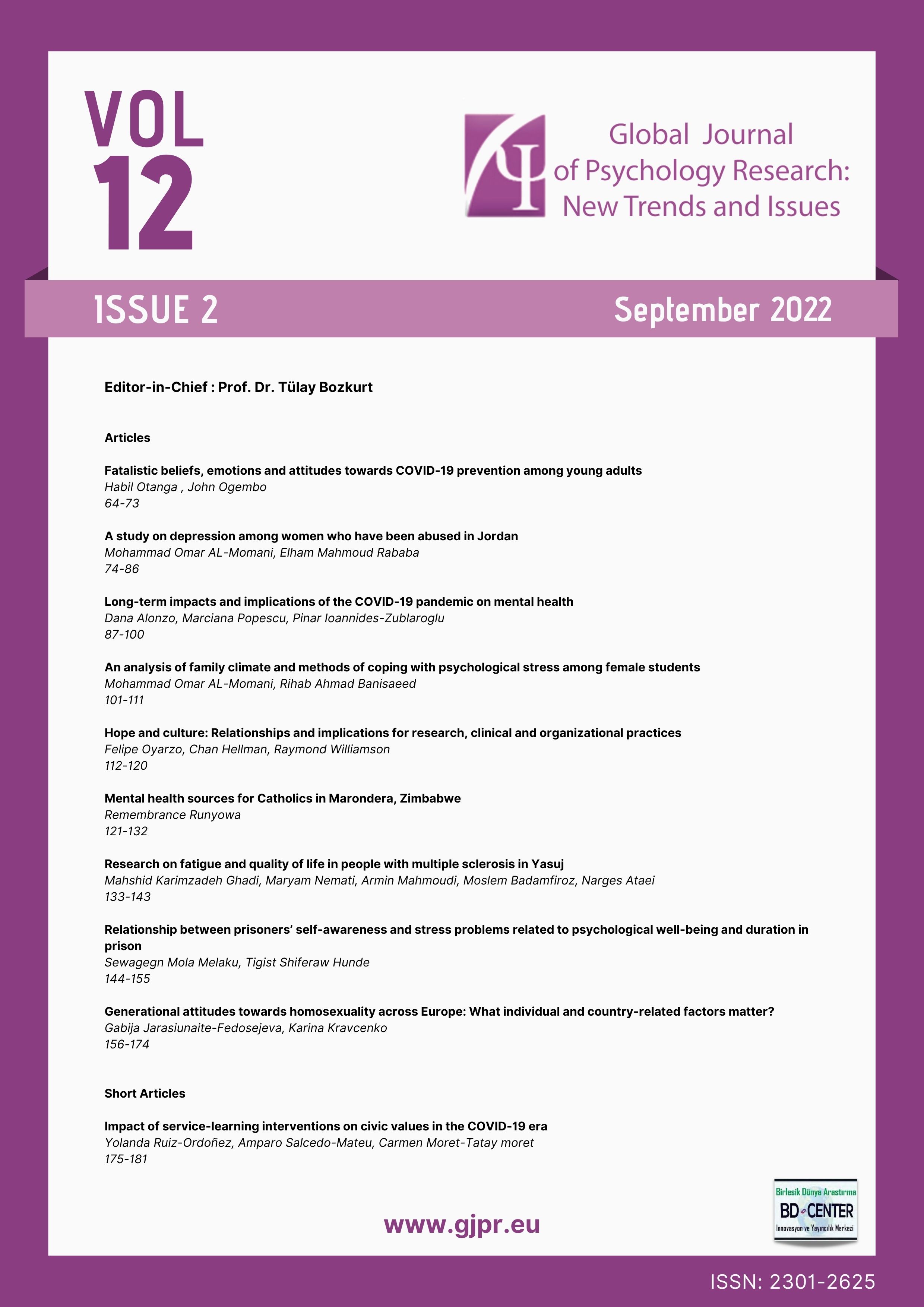Long-term impacts and implications of the COVID-19 pandemic on mental health
Main Article Content
Abstract
Studies examining the long-term psychological impact of the COVID-19 pandemic and proposing mechanisms for mitigating the risk of mental health impairment are sorely lacking, especially in low-income countries. To address this gap, the study aimed to examine the severity of anxiety, stress, depression, burnout, exacerbation of pre-existing mental health symptoms and sense of control over the environment, 1 year post- lifting of lockdown restrictions in response to the COVID-19 pandemic in under-resourced communities in Guatemala. Telephone surveys were administered to 100 participants to assess the socio-demographic characteristics, psychosocial functioning and risk and protective factors for psychological distress. Multiple linear regressions were used to examine the predictors of mental health impairment. The findings indicate significant and persistent mental health distress with moderate to high impairment in terms of depression and anxiety, and low to moderate impairment in terms of burnout and stress. The study presents the persistent pandemic-related distress syndrome, implications and practice recommendations.
Keywords: Anxiety, COVID-19, depression, health, mental, pandemic
Downloads
Article Details

This work is licensed under a Creative Commons Attribution 4.0 International License.
